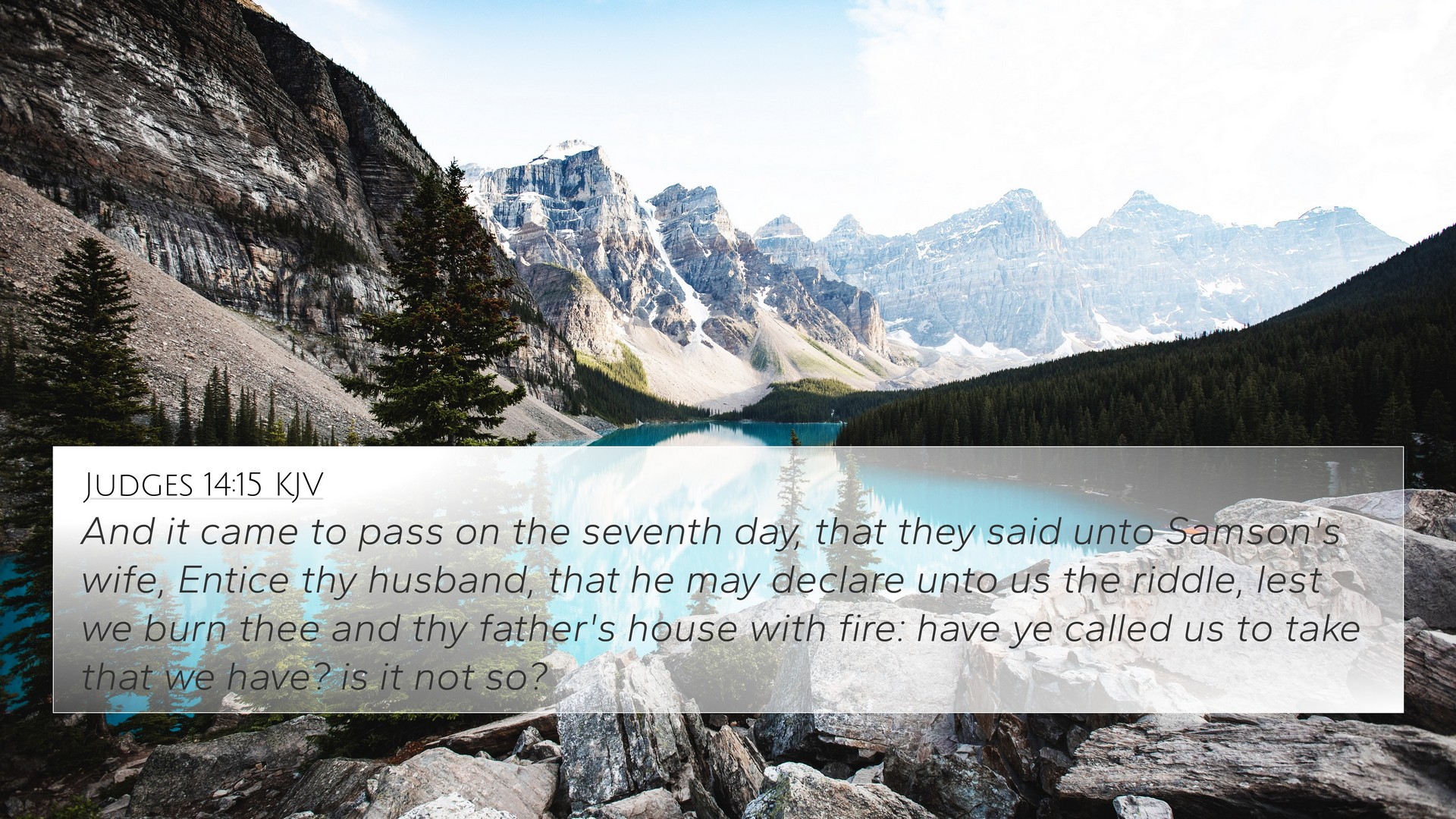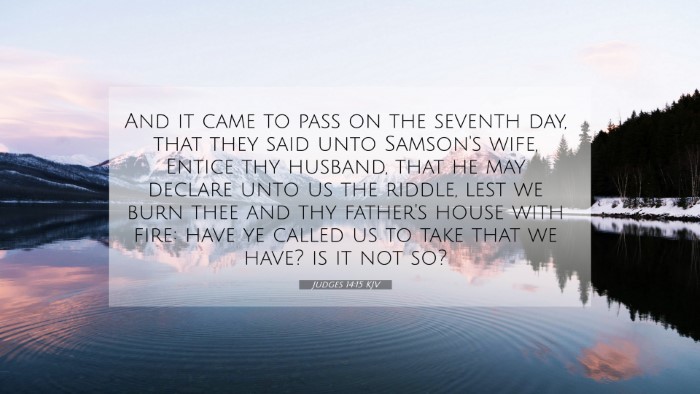Old Testament
Genesis Exodus Leviticus Numbers Deuteronomy Joshua Judges Ruth 1 Samuel 2 Samuel 1 Kings 2 Kings 1 Chronicles 2 Chronicles Ezra Nehemiah Esther Job Psalms Proverbs Ecclesiastes Song of Solomon Isaiah Jeremiah Lamentations Ezekiel Daniel Hosea Joel Amos Obadiah Jonah Micah Nahum Habakkuk Zephaniah Haggai Zechariah MalachiJudges 14:15 Similar Verses
Judges 14:15 Cross References
And it came to pass on the seventh day, that they said unto Samson's wife, Entice thy husband, that he may declare unto us the riddle, lest we burn thee and thy father's house with fire: have ye called us to take that we have? is it not so?
Uncover the Rich Themes and Topics of This Bible Verse
Listed below are the Bible themes associated with Judges 14:15. We invite you to explore each theme to gain deeper insights into the Scriptures.
Judges 14:15 Cross Reference Verses
This section features a detailed cross-reference designed to enrich your understanding of the Scriptures. Below, you will find carefully selected verses that echo the themes and teachings related to Judges 14:15 KJV. Click on any image to explore detailed analyses of related Bible verses and uncover deeper theological insights.
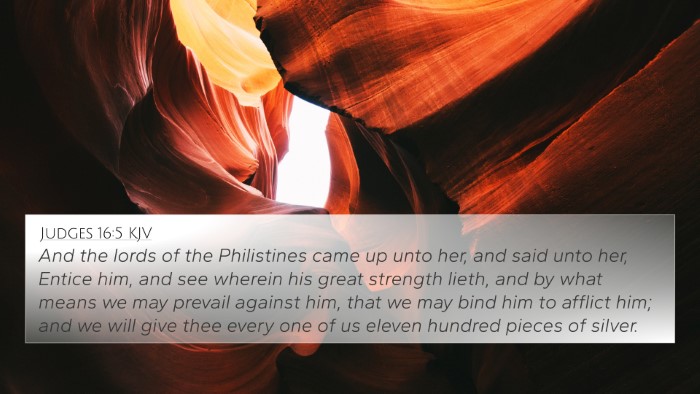
Judges 16:5 (KJV) »
And the lords of the Philistines came up unto her, and said unto her, Entice him, and see wherein his great strength lieth, and by what means we may prevail against him, that we may bind him to afflict him; and we will give thee every one of us eleven hundred pieces of silver.

Judges 15:6 (KJV) »
Then the Philistines said, Who hath done this? And they answered, Samson, the son in law of the Timnite, because he had taken his wife, and given her to his companion. And the Philistines came up, and burnt her and her father with fire.
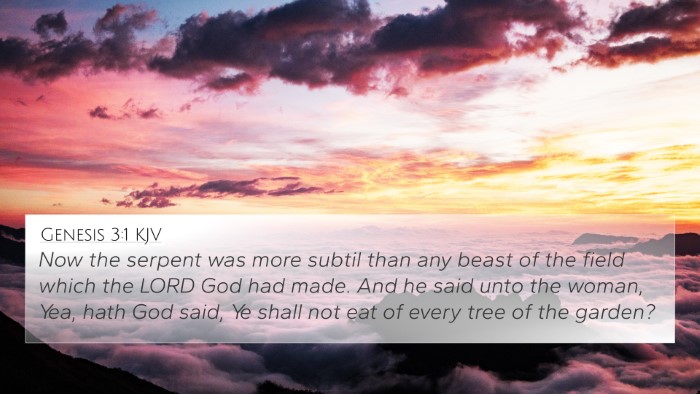
Genesis 3:1 (KJV) »
Now the serpent was more subtil than any beast of the field which the LORD God had made. And he said unto the woman, Yea, hath God said, Ye shall not eat of every tree of the garden?
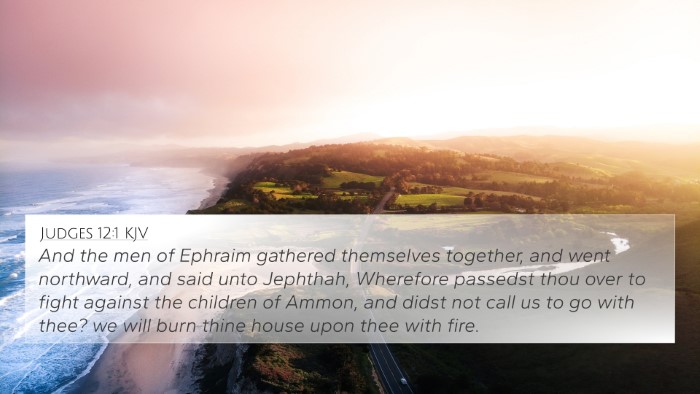
Judges 12:1 (KJV) »
And the men of Ephraim gathered themselves together, and went northward, and said unto Jephthah, Wherefore passedst thou over to fight against the children of Ammon, and didst not call us to go with thee? we will burn thine house upon thee with fire.

Proverbs 5:3 (KJV) »
For the lips of a strange woman drop as an honeycomb, and her mouth is smoother than oil:
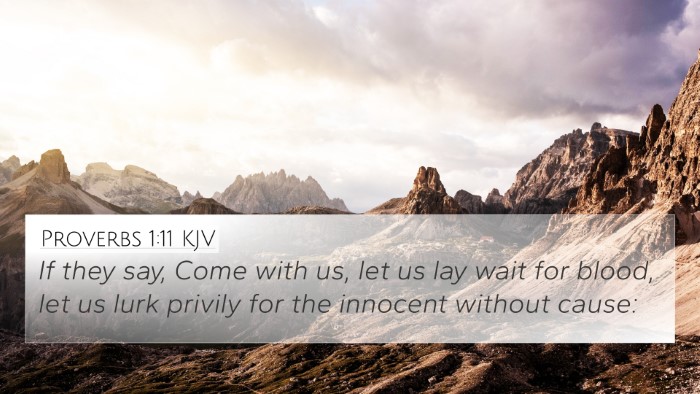
Proverbs 1:11 (KJV) »
If they say, Come with us, let us lay wait for blood, let us lurk privily for the innocent without cause:
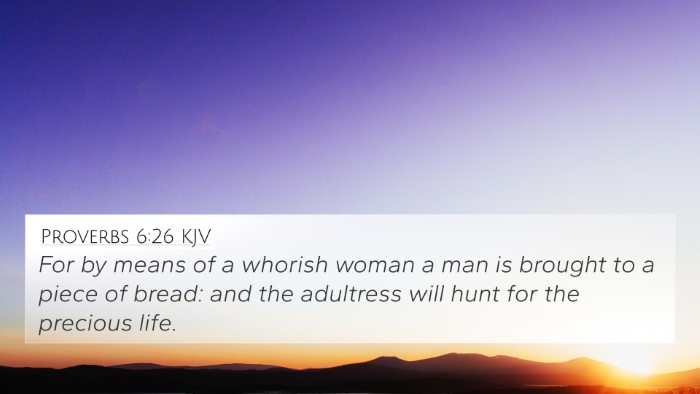
Proverbs 6:26 (KJV) »
For by means of a whorish woman a man is brought to a piece of bread: and the adultress will hunt for the precious life.

Micah 7:5 (KJV) »
Trust ye not in a friend, put ye not confidence in a guide: keep the doors of thy mouth from her that lieth in thy bosom.
Judges 14:15 Verse Analysis and Similar Verses
Understanding Judges 14:15
Judges 14:15 states, "And it came to pass on the seventh day, that they said unto Samson's wife, Entice thy husband, that he may declare unto us the riddle, lest we burn thee and thy father's house with fire: have ye called us to take that we have? is it not so?"
This verse occurs in the context of a significant moment in the life of Samson, the judge of Israel, known for his supernatural strength and his contentious relationship with the Philistines. This episode depicts the challenging dynamics between the Philistines and Samson, particularly revolving around a riddle he posed. The Philistines threaten Samson’s wife to extract the answer to the riddle, showcasing their desperation and the intensity of their enmity towards Samson.
Commentary Insights
Matthew Henry's Commentary
Matthew Henry provides insights into the manipulation and coercion faced by Samson’s wife in this scenario. He emphasizes that the Philistines resorted to threats to compel her to betray her husband, highlighting the inherent tension and conflict of loyalties in her position. Henry interprets this as a reflection of the broader struggle between the Israelites and the Philistines, and how personal relationships were complicated by national enmity.
Albert Barnes' Commentary
Albert Barnes focuses on the implications of the Philistines' threat. He notes that their demand reveals their fear of Samson and his riddle, interpreting it as an indirect acknowledgment of his power. Barnes argues that the riddle itself symbolizes deeper truths about divine wisdom and the folly of trusting in mere human power. Furthermore, he points out the pressures that external forces can place on individuals, leading to difficult moral choices.
Adam Clarke's Commentary
Adam Clarke digs into the consequences of this pivotal moment for Samson. He discusses the tragic dimensions of personal betrayal and the manipulation of relationships. Clarke draws attention to how the Philistines exploited the situation to further their agenda, demonstrating the theme of conflict prevailing at every level—personal and communal—during this historical period. He also connects this moment to the prophetic clarity regarding the fate of Samson and his inevitable downfall.
Thematic Connections
This verse showcases several thematic elements such as:
- Manipulation and Coercion: The Philistines’ tactics reveal the lengths to which they will go to gain an advantage over Samson.
- Identity and Loyalty: Samson’s wife is caught between her loyalty to her husband and the pressure from her people.
- The Power Struggle: The enduring conflict between the Israelites and the Philistines is a recurring theme throughout the book of Judges.
Bible Cross-References
In exploring Judges 14:15, several related Bible verses provide additional context and understanding:
- Judges 14:12-14: The riddle Samson presents and the context surrounding it.
- Judges 14:16-17: The emotional and relational implications of Samson's interactions with his wife.
- Judges 13:5: The divine purpose foreordained for Samson as a Nazirite.
- 1 Samuel 18:8-9: The comparable relationship dynamics and manipulation seen in Saul and David's narratives.
- Proverbs 1:10-15: A metaphorical reflection on the enticing nature of relationships that lead away from wisdom.
- Matthew 5:37: The teaching on oaths and promises; how manipulation can affect integrity.
- Luke 22:48: The betrayal of Jesus, paralleling the theme of personal betrayal in judged narratives.
- 1 Corinthians 15:33: An admonition regarding influence from those who do not share faith.
Conclusions and Interpretative Applications
The interaction depicted in Judges 14:15 informs us about the broader implications of conflicts in human relationships, especially when exacerbated by cultural and national tensions. It reminds us of the stakes involved in personal commitments and the potential for external influences to disrupt them.
For those engaged in Bible verse cross-referencing and studying how to find cross-references in the bible, tools like a bible concordance or a bible cross-reference guide can greatly enhance one's study. These resources assist in uncovering connections between Bible verses and facilitate deeper theological insights by providing a framework for cross-referencing biblical texts.
